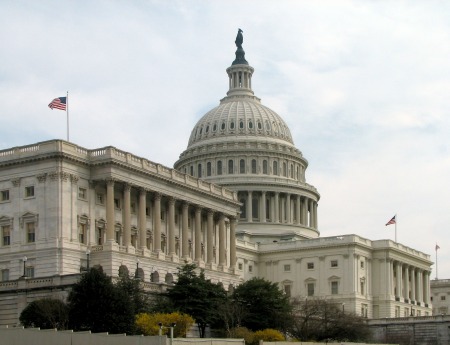GOP Bill Would Apply C-Band Proceeds to Digital Divide
Up to $65 billion would be earmarked for broadband

The smarter way to stay on top of the multichannel video marketplace. Sign up below.
You are now subscribed
Your newsletter sign-up was successful
A pair of powerful Republicans have introduced a bill that would tell the government how to spend the proceeds from the record-setting FCC C-Band Auction.
The auction, the largest-ever auction of midband spectrum, closed Jan. 15 having taken in $80,916,832,754 in gross proceeds
The Broadband Reserve Fund Act would require the net proceeds--up to $65 billion--to be deposited in a special reserve fund at Treasury earmarked for "broadband access and digital opportunity, modernizing the nation's communications infrastructure and meeting other connectivity needs," rather than leaving the money in a general fund that could be used for deficit reduction.
Also Read: Cable Says C-Band Bucks Should Be Use-Specific
The funds could be spent by the FCC or the National Telecommunications & Information Administration, which oversees government spectrum holdings.
Wicker said the bill would take a meaningful step to close the digital divide, particularly the rural divide, along with other steps like better broadband mapping and providing for better network security. "The pandemic has made internet access more vital than ever as Americans are relying on broadband services to work, learn, and connect with loved ones," Wicker said. "This legislation would preserve valuable resources to expand broadband access in unserved areas, secure the nation’s communications supply chain, and promote the development of next-generation technologies."
“The pandemic has forced Americans to live an increasingly virtual life, and rural areas have been disproportionately impacted," said Blackburn. "We must do more to close the digital divide.”
The smarter way to stay on top of the multichannel video marketplace. Sign up below.
Also Read: Pai Takes Heat Over C-Band Payments
The bill also expresses the "sense of Congress," which is a signal not a mandate, that the money could be used for remote learning, digital equity, expanding broadband in minority communities, securing the communications supply chain, public safety, spectrum efficiency, communications, high tech agriculture and telehealth.
The money would be available until 2030, after which anything left could then be applied to deficit reduction.
Contributing editor John Eggerton has been an editor and/or writer on media regulation, legislation and policy for over four decades, including covering the FCC, FTC, Congress, the major media trade associations, and the federal courts. In addition to Multichannel News and Broadcasting + Cable, his work has appeared in Radio World, TV Technology, TV Fax, This Week in Consumer Electronics, Variety and the Encyclopedia Britannica.

